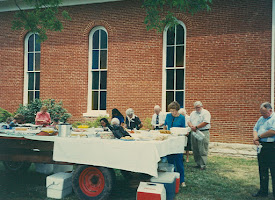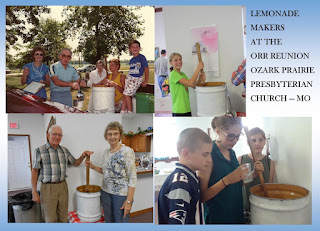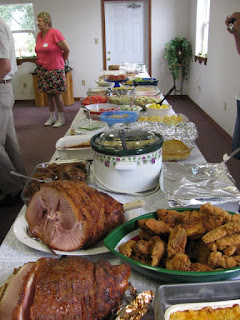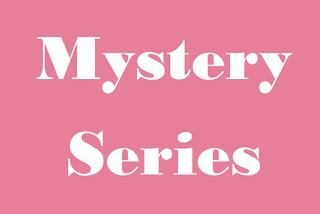And some they offer to others. At the Prime Crime at the Columbia Club conference the last weekend in October, a stellar group of mystery and thriller authors shared advice on a range of topics. There was a lot of agreement, and occasional individual ideas that made others nod.
The authors were: S.J. Rozan (panel chair), C.J. Box, Ruth Dudley Edwards, John Gilstrap, and Reavis Wortham -- shown in order in the photo.
What Are You Waiting For?Everyone is busy. And sometimes there are other priorities you need to address before writing. As John Gilstrap says, there are 1,000 reasons not to pursue a dream. If writing is to become more than a dream: sleep less, be online less, and simply risk doing it. Bottom line, “Never let voices of others deter your ability to make time.”
Ruth Dudley Edwards had the simplest advice – “Just do it. Don’t get advice, get it written.”
In true Texas style, Reavis Wortham said, “Put your butt in a chair, finish it, and put it in a drawer.” He isn’t saying forget about it. Time away from a manuscript lets you better evaluate it.
It’s Fiction. How Much Does Research Matter?
Another conference panel discussed research in depth, but Reavis Wortham had some specific advice. Readers notice what you get wrong, and it matters to them. If you don’t know a lot about guns, make sure what you say is accurate. Know the difference between a sheriff and the police force.
I would add that if you don’t know what you don’t know, make sure you have some good cold readers who know a lot about a topic. Even if it’s not key to the story, why describe architecture inaccurately or say someone drove a Mustang in 1942?
Is it Plot or Characters and Setting?
No one will argue a plot has to be well thought-out and (for mysteries especially) offer twists and surprises. S.J. Rozan noted that while Agatha Christie’s Miss Marple may pursue criminals in a similar fashion in all the books, we read them in good part because of the setting and characters.
C.J. Box added that a great sense of place is more remembered than a good plot. Readers like to revisit places they remember well.
Ruth Dudley Edwards was direct. “Plot is a nightmare. If you use the same characters, put them in new environments.”
How Helpful are Writers’ Groups?
John Gilstrap said critique groups can be good, but members have to give one another more than observations. Say why something doesn’t work well. Edwards emphasized having friends who will tell you when you’re wrong about something.
S.J. Rozan believes there are three kinds of groups. One type will say what you do is all brilliant. That’s no help. Another kind will say what’s good and what isn’t working. That's the kind of group authors need.
The third she deemed toxic. Comments either aren't helpful or (worse) some members put others down or try to tell them what to do. Don’t be afraid to leave a toxic group.
The All-Important Point of View Decisions
In some of my early writing, I used lots of points of view. I recognize now that I thought of points of view as the eye of a camera. A movie shows many people doing things. Eventually, I learned they didn’t all have to tell the story. Thankfully, these were learning pieces I didn’t show anyone.
C.J. Box thinks establishing the point of view character is essential. If you bounce it around, it takes you (and readers) out of the story. It especially may not work to change point of view within a scene.
Gilstrap says he determines whose point of view is the most dramatic to make a scene work. Write it that way. If it doesn’t work, change the POV character.
You Say You Don’t Have Time to Read
You say you don’t have time to read? Here are some important reasons to read as much as you can, and suggestions to make time.
Reading gives you ideas. Don’t put it off. (C.J. Box)
Read what you love. If you think you don’t have time, decide to read at least a certain number of pages each day. (Wortham)
Read away from the computer. Think of it as part of your job if it’s the only way to be sure you do it. (Rozan)
While you’re at it, meet other authors. You’ll get advice from peers if you need it. (Wortham and Rozan)
Market of the Moment
Gilstrap says fall in love with your characters rather than writing to the market. Besides, if divorced sleuths or PIs who are recovering alcoholics are in vogue now, they won’t be when your books is done. That’s not to say current books aren’t well done – just write your own.
Wortham stresses to find what you are comfortable writing. That doesn’t mean don’t try something different, but you’ll like the writing process more if you are comfortable with a topic or type of character.
Ruth Dudley Edwards had some advice that rang especially true with me. “Don’t write something revolting. Do you have to write about cannibals in detail?” Maybe you do, she adds, but don’t do it because it’s the fashion of the moment.
A Few Other Great Quotes
C.J. Box had an interesting point about writing a series. Sometimes people will talk about what they plan to do in multiple books, or how characters will evolve. While it’s okay to look ahead, put all you have in book one. Then think about book two.
Reavis Wortham mentioned a familiar topic – rejection letters. “Never give up!” You’ll get past a low point. He wished he hadn’t thrown out a pile of rejection letters. They’d be reminders (not just to him) to keep at it. His first book was not published until after he retired from a previous career.
S.J. Rozan is always pragmatic. “If there's anything else you want to do as much as write, do that.”
* * * * *















